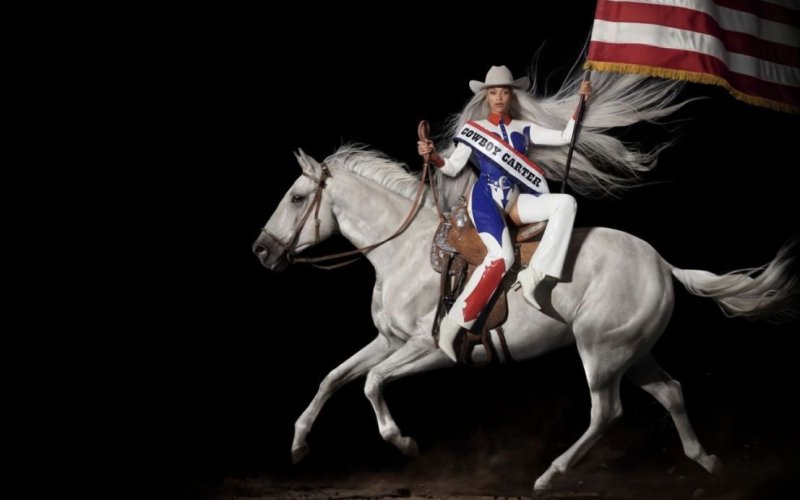Hobson Shares Insights on Symbolism, Historical Context of Beyoncé's Album Cover

ALBANY, N.Y. (April 4, 2024) — Beyoncé’s latest album, “Cowboy Carter,” was released last week, breaking records in first-day streams, charging up the charts in the U.S. and U.K. and creating buzz for both the genre and cover art.
On Wednesday, NPR checked in with Professor Janell Hobson of the Department of Women, Gender and Sexuality Studies, to discuss the album cover, which features Beyoncé dressed in red, white and blue cowboy-inspired garb, sitting sidesaddle on a white horse and holding an American flag.
“There are so many ways we could read that image,” Hobson told NPR host A Martinez. “There is, on the one hand, I think she's being a bit tongue-in-cheek, creating a kind of campy, pastiche image of what we think country music represents. And oftentimes, country music and their artists are wrapped up in the American flag. They're wrapped up in this idea of patriotism and love of country. I think she is playing with those ideas. And at the same time, because it's a partially obscured flag, I think she's also calling attention to how we reclaim ideas about love of country. How do we see our own identities as Americans — and especially for those Americans, specifically African Americans, who have often been excluded from American — participation in American citizenship?”
Earlier this month Hobson took a deeper dive into the symbolism in an article in Ms. titled “Whose Flag, Whose Symbol? Notes on Beyoncé, Reclamations and (Black) Lady Liberty.” The flag is just a starting point for Hobson’s discussion on racial exclusion throughout U.S. history.
“These histories of racial inclusion and exclusion obscure the place and space for Americans of color, especially African Americans, which makes Black historic reclamation complicated,” she writes. “This is especially true when African American civil rights struggles — from Black Power to Black Lives Matter —travel globally to inspire and influence various human rights battles beyond U.S. borders across the African continent, in the Black Diaspora, and elsewhere among various anti-colonial movements.”
Listen to Hobson on NPR and read her article in Ms. here.





